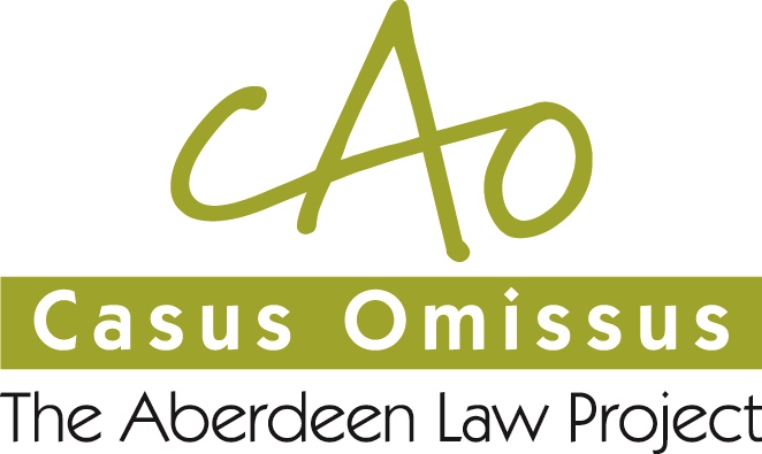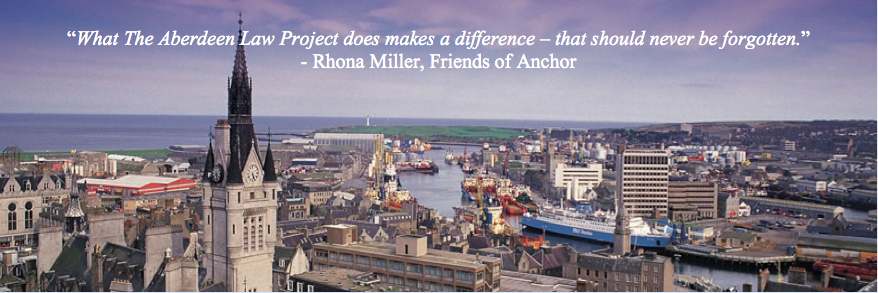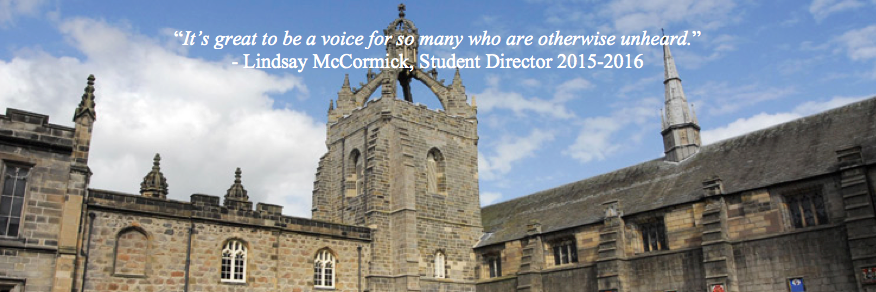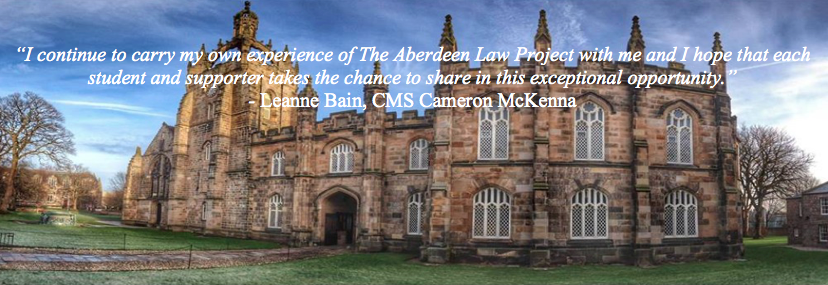Community engagement, outreach and education.
Our founding principles provide that student members should not only advise and represent those with legal issues, but that they should also work to empower the community by assisting and/or providing the knowledge and skills necessary to reduce the likelihood of a legal issue occurring in the first place.
We believe this dual approach is the way to minimise the access to justice problem that exists in North East Scotland.
Both independently and in collaboration with other established community groups and charities, we provide information and practical assistance on a range of subjects. Some of our current projects and initiatives are below.
Working with Young People - Our Schools’ Team
The main aim of the School’s Project is to make the law accessible as well as to increase understanding of the legal system at a young age – through discussing the law as it affects young people, providing an insight into how the Scottish justice system operates and highlighting the career paths available within the legal sector.
We offer workshops to pupils aiming to raise awareness on issues they may encounter as well as their legal implications. These workshops aim to better prepare students from a young age as to how to protect themselves. These workshops raise awareness on topics including; digital crime, health awareness, drug abuse and money and product mules. Our school’s team, create and present interactive workshops, tailored to students of different ages to inform and educate students on these contentious topics and their legal implications.
Furthermore, our mock trials workshops provide pupils with an opportunity to learn about how the Scottish legal system works and allows them to engage actively in the court procedure. The team delivers these workshops both independently to schools as well as in partnership with Police Scotland – delivering a comprehensive session on police and court procedure.
We also provide workshops and one-to-one mentoring focused on bridging the academic attainment gap in social science subjects at under-performing schools as well as educating and inspiring students to pursue different careers in the legal sector through our ‘Legal Looking Glass Initiative’.
Working with the wider community…
We work to make the law and legal rights both more accessible and comprehensible to the wider community. We do this through a variety of community initiatives which cover most demographics and age groups.
Prisons Project
Since 2010, the Prison's Project has aimed to support reintegration back into the community; a stage in the offending cycle where offenders are particularly susceptible to the social pressures which often lead them to relapse into criminal behaviour. Equipping prisoners with the skills, knowledge, and confidence to successfully re-enter the workplace is at the forefront of our specifically tailored, practical employability skills workshops. These workshops cover CV, interview Skills as well as rights within the workplace.
Homelessness Outreach
Our Homelessness Outreach team works to raise awareness of homelessness in the North-East and give guidance and information to homeless or homeless-threatened individuals to help them improve their situation. The team runs the ‘OutFit Like’ scheme which aims to provide homeless or low income with appropriate workwear for interviews. Our employment rights team collaborated on this scheme offering workshops on CV skills and interview skills to service users assisting them in their journey to secure employment from start to finish.
Domestic Abuse Prevention and Legal Consent
We also aim raise awareness on the issue of domestic abuse with the view that victims will be empowered to seek help but also that other members of the community will be better able to identify signs of domestic abuse in their own relationships and in other relationships. This closely links to our workshop on consent education aims to inform the community on the importance of obtaining consent and what constitutes consent hoping to create a culture of consent and respect. We have partnered with Police Scotland to provide the wider university community with consent education.
Immigration & Integration
The aim of the project is to be able to make information and rights surrounding immigration more accessible and comprehensible to the wider community. The team also aims to facilitate and encourage integration through bringing community members from various cultures and ethnicities together to share their experience and learn from each other.
Hate Crime Awareness
We also take a stand against discrimination, hate crime and bullying. Following incidents of hate at the University of Aberdeen, we are taking steps to address issues of discrimination and intolerance in our society. Our aim is to raise awareness and to spread a message of hope for those who have suffered from hate crime, encouraging them to report it.
Renters’ Rights & Employment Rights
We also aim to educate and engage with the community over their rights and responsibilities as private renters. We also provide accessible information on rights within the workplace.
Business Initiative
We also try to encourage both entrepreneurship within the community and at an early age as well as to make legal information on creating a business accessible and understandable to the wider community including the migrant community.




